Good afternoon, everyone!
Today I'll show you a very cool store with some funny artwork decorations. Since it's Friday, it's a perfect post for the #MarketFriday initiative by @dswigle. 😊
This store is located in the city of Mirandela, in the North of Portugal, and it's called "Mercado do Zé" which means "Zé's Market". Zé is the owner, of course... and it's the short name for José.
The front of the store has some signs saying they have tapas, wine, coffee and tea... which means it's not just a simple store but a mix between a small tasting place and a mini-market. What a strange but cool concept...
People can buy local and fresh products but also sit for a while and ask to taste stuff before they buy. They have all kinds of regional delicacies.
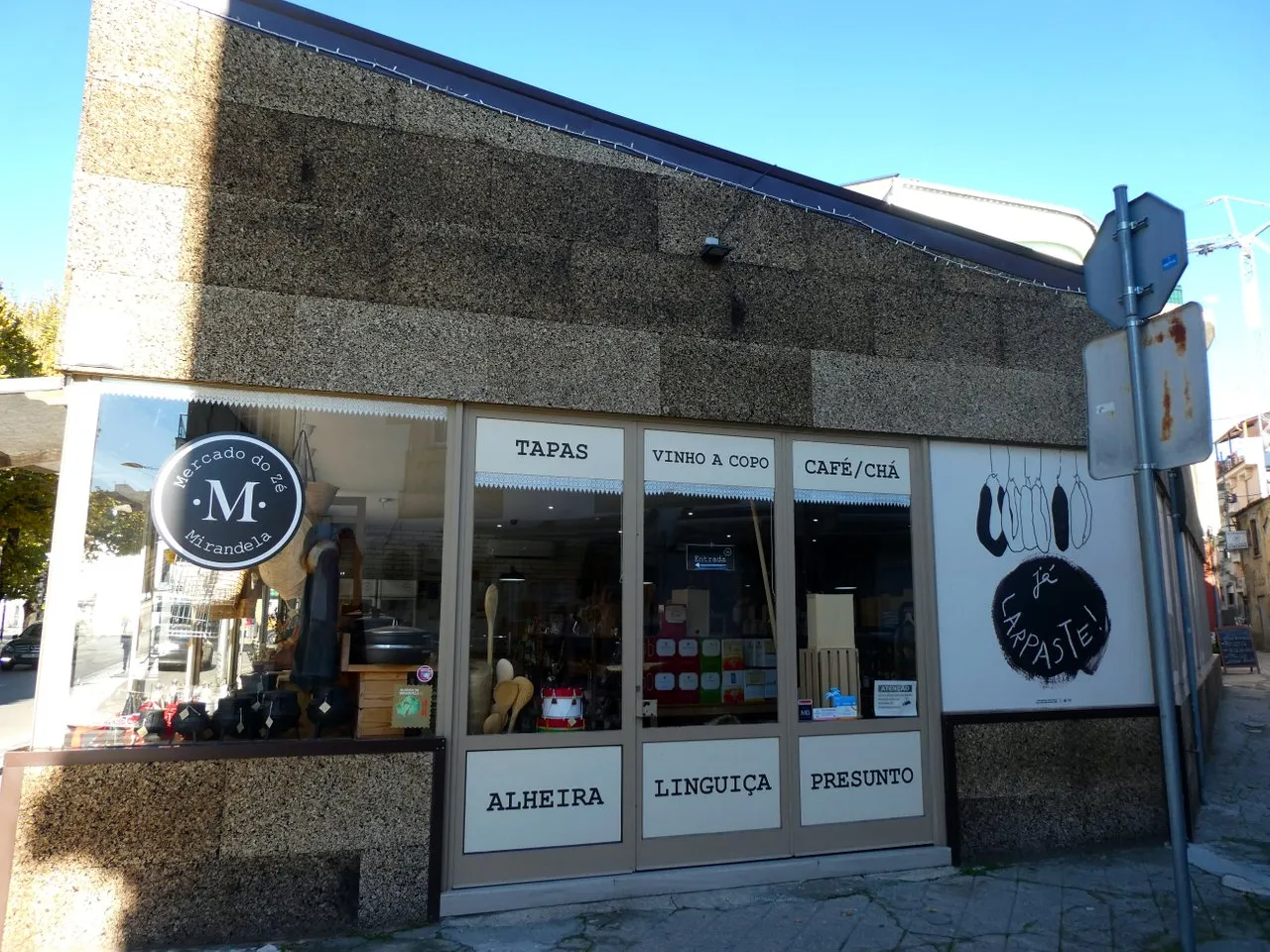
The walls of the building are decorated with interesting panels, with some quirky humour. These will probably be funnier to Native Portuguese speakers than to everyone else, though.
I'll try to translate the meaning of these messages, anyway.
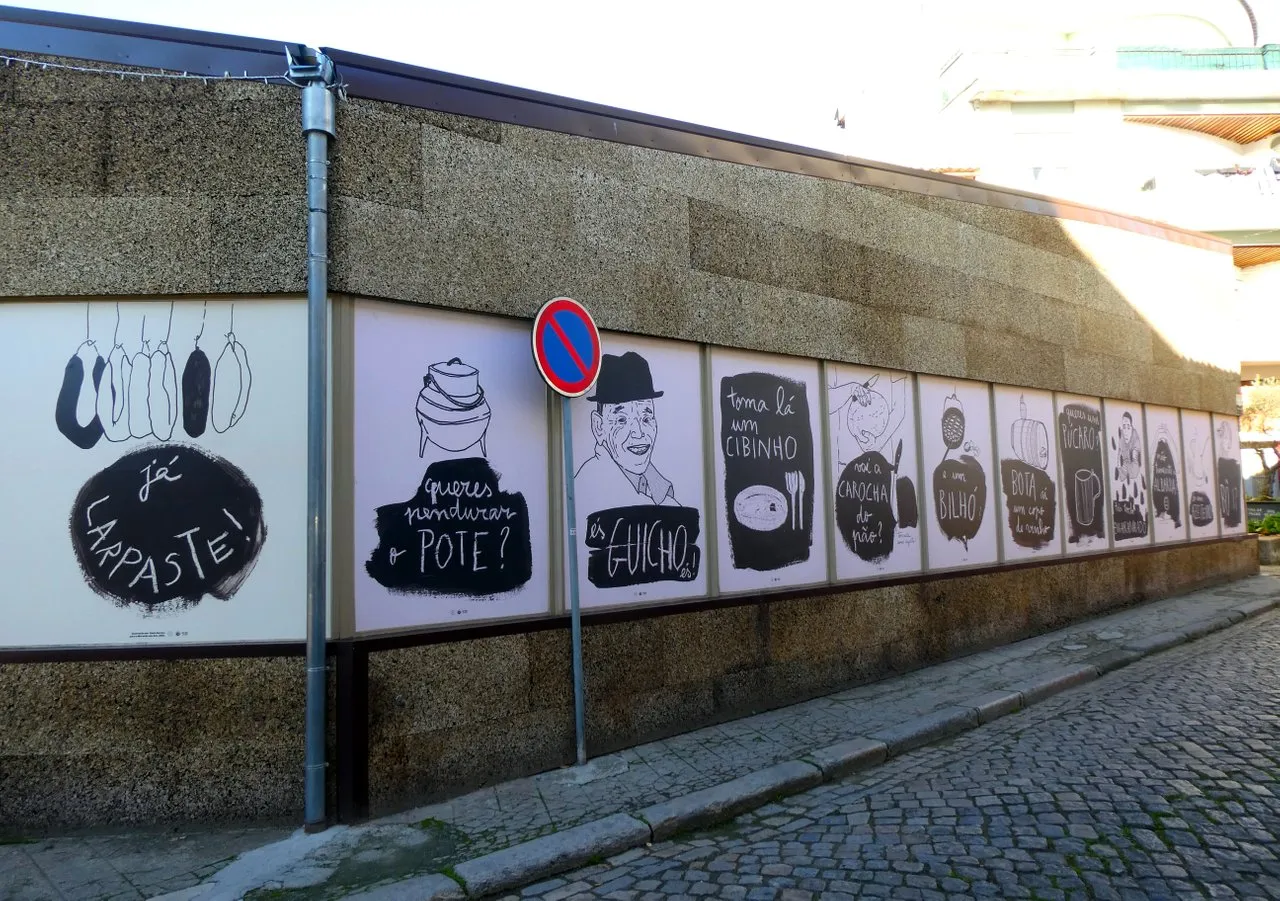
The first one says: "Já larpaste!" and it's a popular expression meaning "You've already eaten." It's funny because it has a double meaning where it can also mean "You'll get a slap for that." Something that moms usually say to young children when they do something stupid and wrong.
Let's see the next 3 panels...
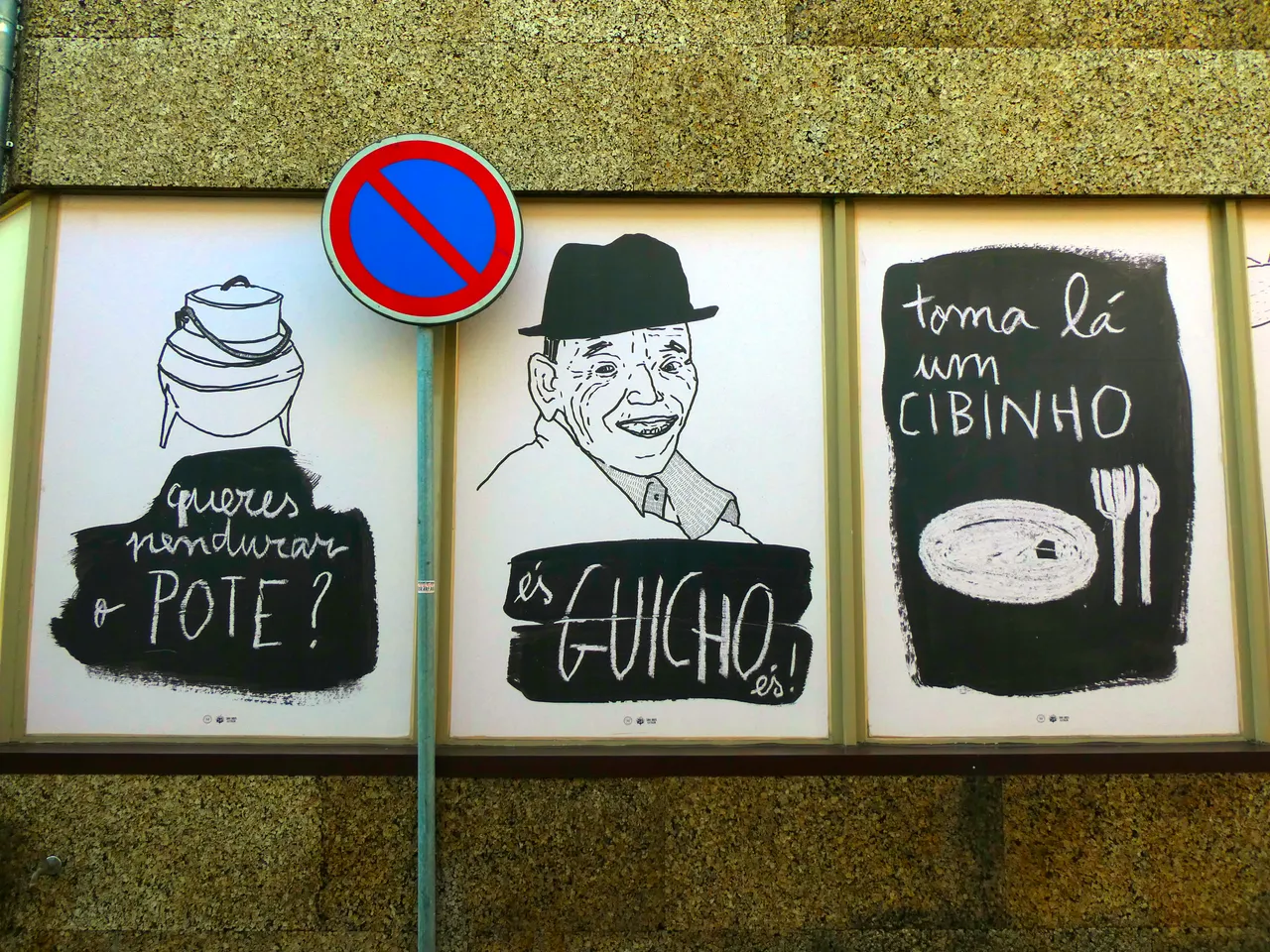
Next, there was a question "Queres pendurar o pote?" meaning "Do you want to hang the pot?" Again, this has a double meaning. In the North of Portugal, "Pendurar o Pote / To Hang the Pot" means to be wealthy, to have valuable possessions. Or it can simply mean just that... to hang the pot to cook something it it.
"És guicho, és!" - This means "You're a lively one, aren't you?"
It's an expression that old people usually say to young kids, when they are being smart asses and restless. 🤭
"Toma lá um cibinho." - The word cibinho is a diminutive for cibo, so if you are an Italian speaker, you already know this one, which means "food". Here in Portugal it means a small portion of food. This sentence can be translated to "Here's a small treat for you."
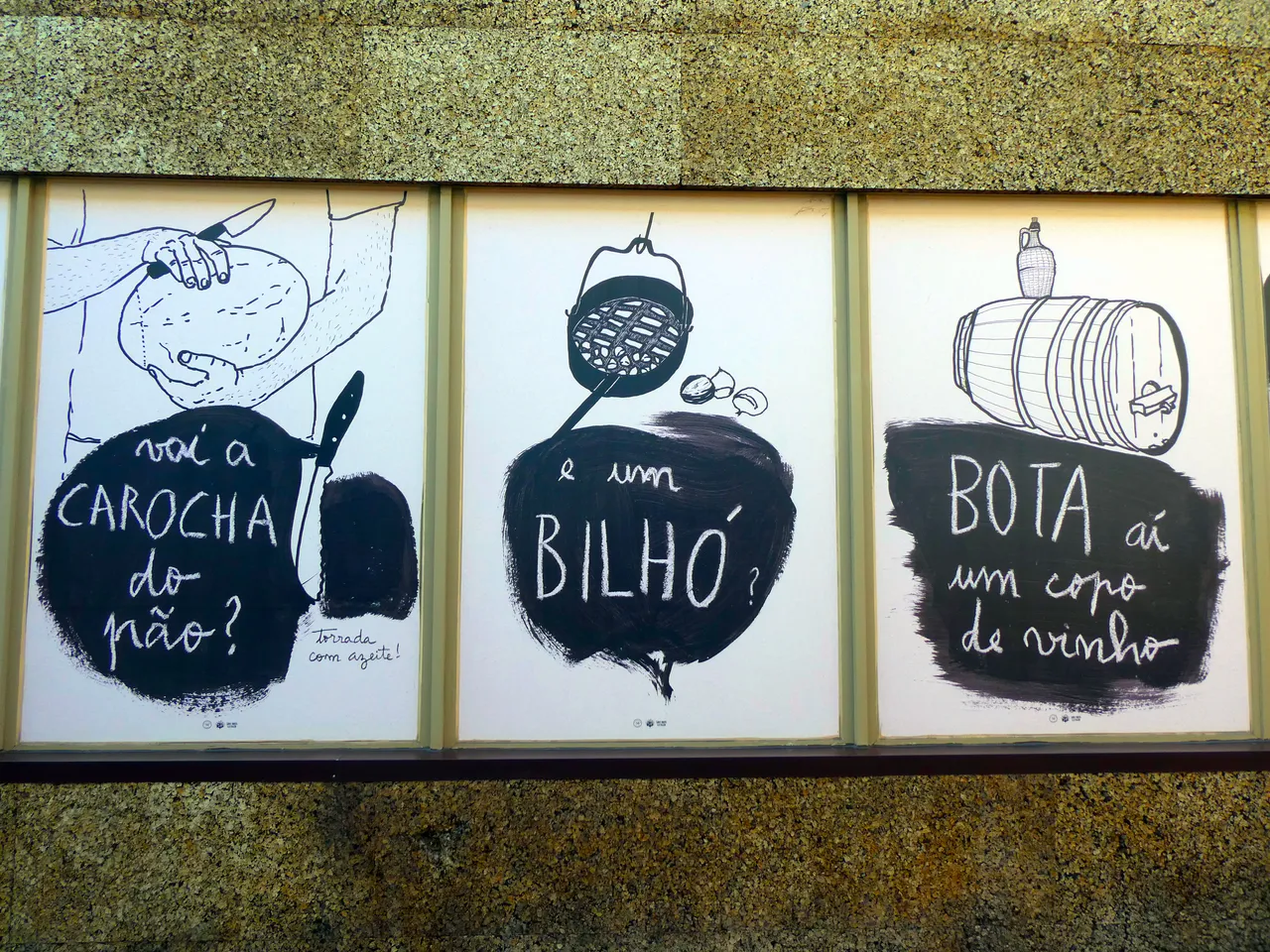
"Vai a carocha do pão?" - Carocha do pão is a coloquial expression to refer to the crust of the bread. In some places the waiters will ask you this when you ask for a toast with butter, cheese or olive oil, to know if they should serve you the toast with the crust or just the middle of the bread. Note: it's usually more expensive to ask without the crust... so if you're low on cash, just ask a regular toast and leave the crust on the plate, if you don't like it. 😂
"E um bilhó?" - This means "What about a bilhó?"
A bilhó is something quite typical of these Northern regions of Portugal, it's nothing more than roasted (or boiled) peeled chestnuts. Usually served with some salt. It's freaking delicious, specially on cold days. 😋
The next expression is a very popular one, all through Portugal, from North to the South, not forgetting the Islands: "Bota aí um copo de vinho." It's a way of asking for a glass of wine... but don't you go around saying this in restaurants and bars, as it's considered a bit rude. This is usually said among friends who don't feel the need to ask for things politely to each other. 🤭
Moving on to the next 3...

"Queres um púcaro?" - A púcaro is a cup with a handle. I guess... a jug or a mug. This usually means "Do you want a cup of water?"
"Tás todo engaranhado." - This can be translated to "You're shivering." and it's something you would say to someone who's trembling from cold or from an illness.
"Não trouxeste a albarda?" - This question means "Haven't you brought the saddle bag?" It's an old saying that's no longer used with its literal meaning - after all, hardly no one travels by donkey or horse these days. We don't have much use for such saddles. 😆 Nowadays this expression simply means "Have you forgot to bring your lunch?"
Here are the next couple of drawings:
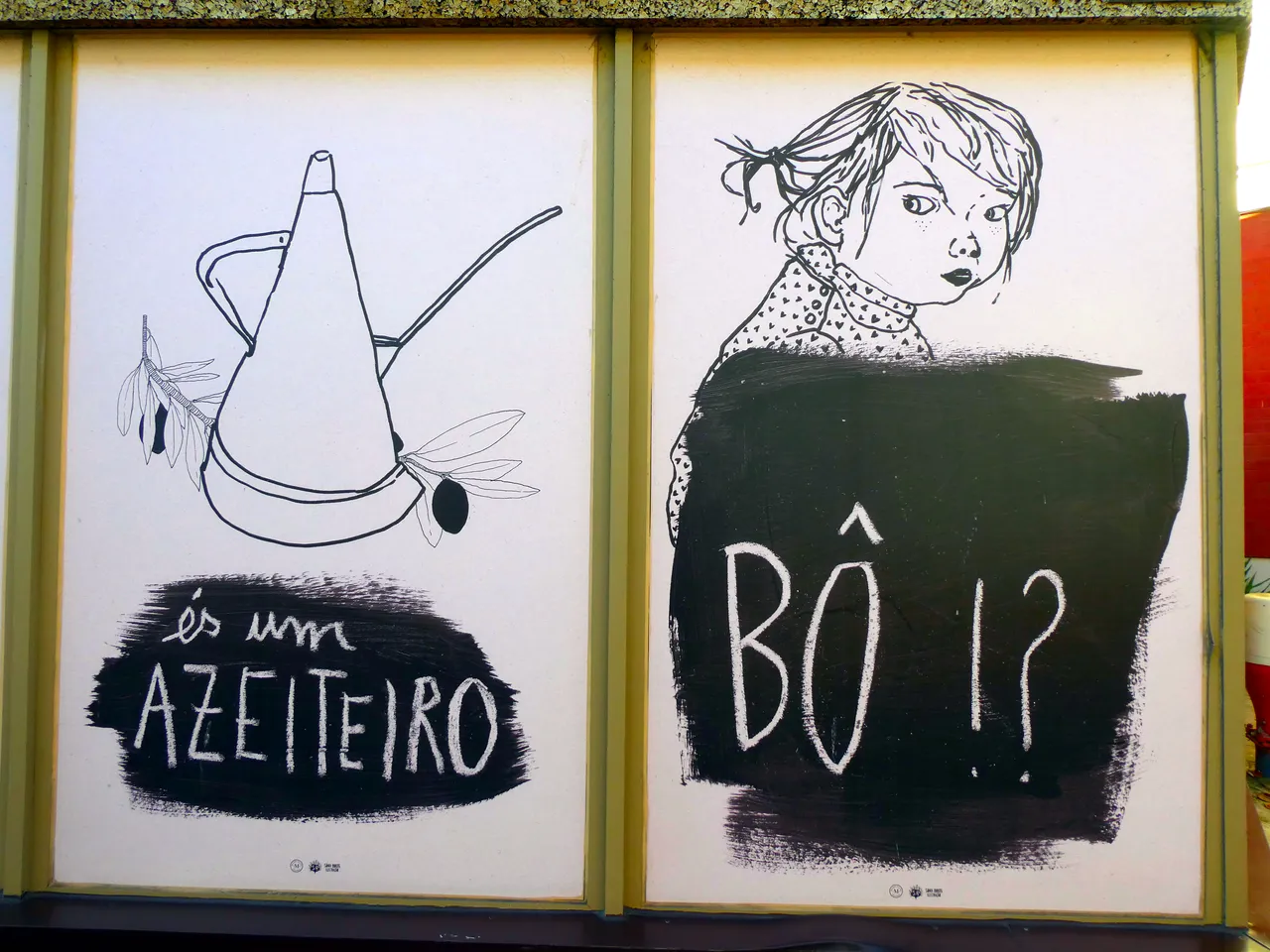
"És um azeiteiro!" - This is a well know phrase in Portugal and it's mostly used by kids to insult others.
Azeiteiro is a kitchen utensil to hold olive oil - azeite (in Portuguese), that's where it's name comes from.
However, to call someone an "azeiteiro" it means that person is - how to say in English? - someone a bit cringe, a person who tries too hard to look stylish but fails miserably, ending up looking like a moron.
"Bô!?" is just the short form of the word "Avô / Grandfather." Due to the closeness with Galicia and its Language, people in the North of Portugal have always pronounced the "v" as a "b", so "Avô" became "Abô"... and then just "Bô."
And so we get to the final piece.
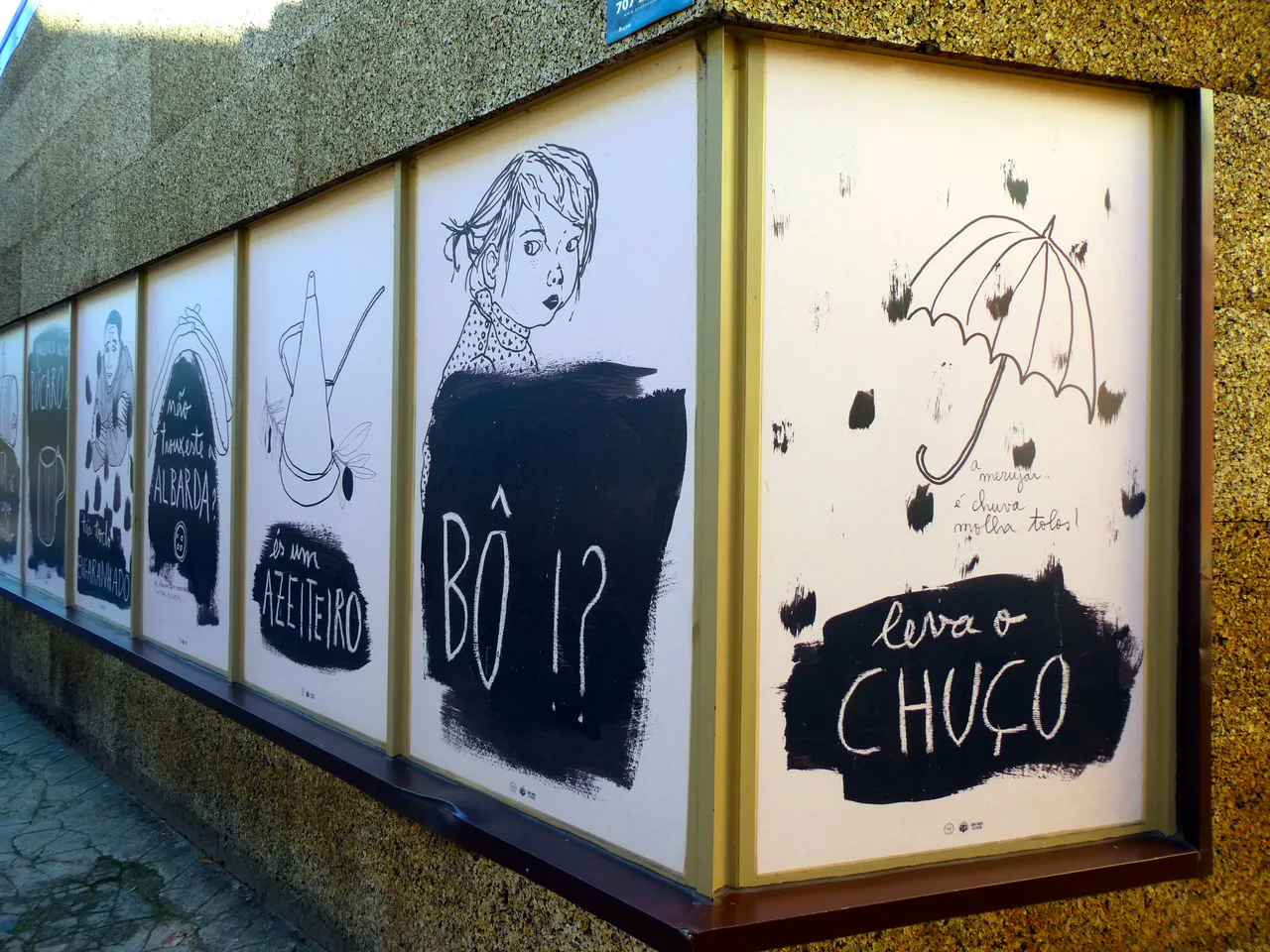
This one says "Leva o chuço" - Bring your umbrella.
On smaller words you can read "A merujar é chuva molha tolos!" which means "Drizzling is rain to wet fools." This is a colloquialism to say that when it's drizzling most people tend to dismiss it as being just a small drops of rain... and logically they end up foolishly soaked. Hence, rain to wet fools. 😉
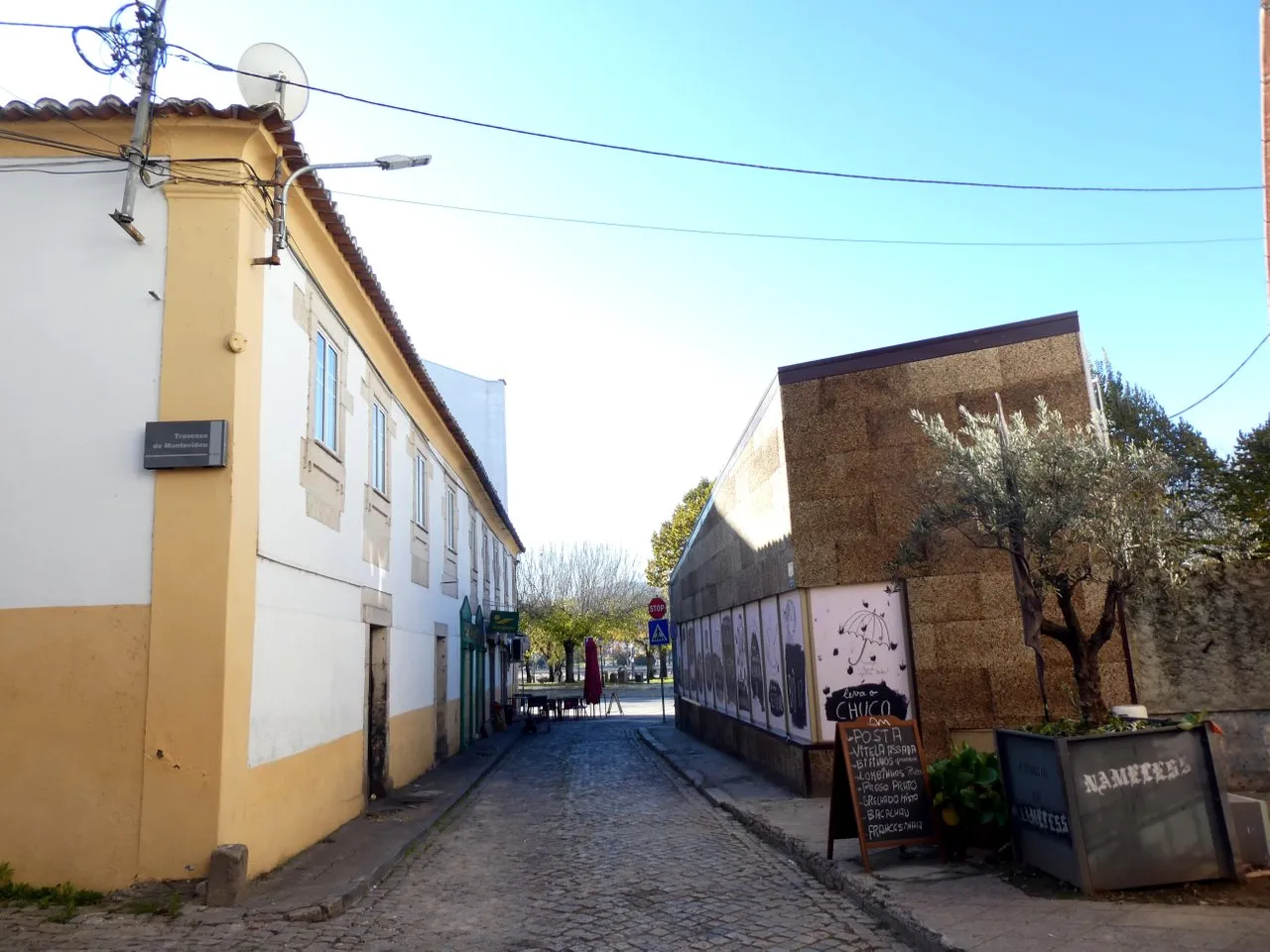
Well, that was the last one. I hope you enjoyed these panels and that my translations helped you to understand them.
Leave a comment down below... or not. As you wish! 🤗
| Location | Mirandela - Portugal |
| Camera | Panasonic Lumix DC-TZ90 |
| Photos | 8 (Edited with GIMP) |

